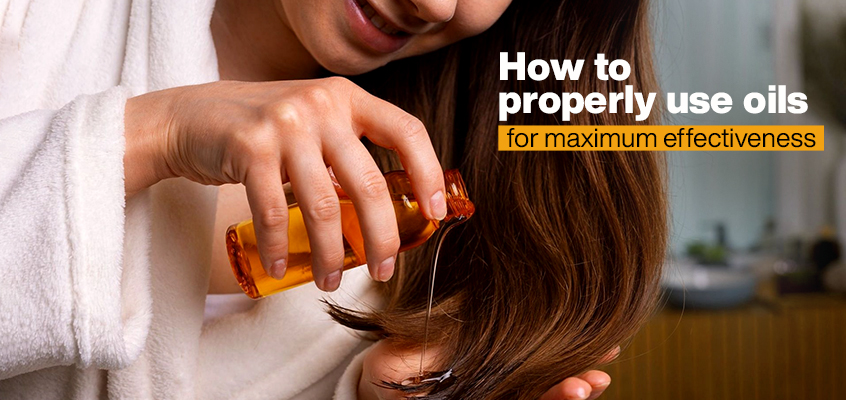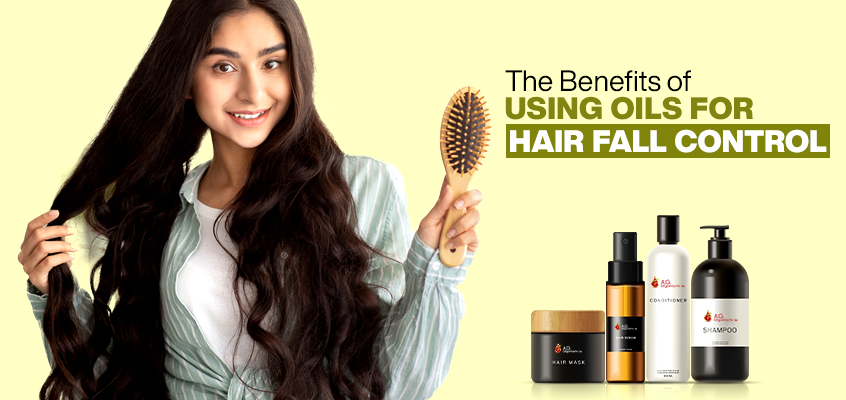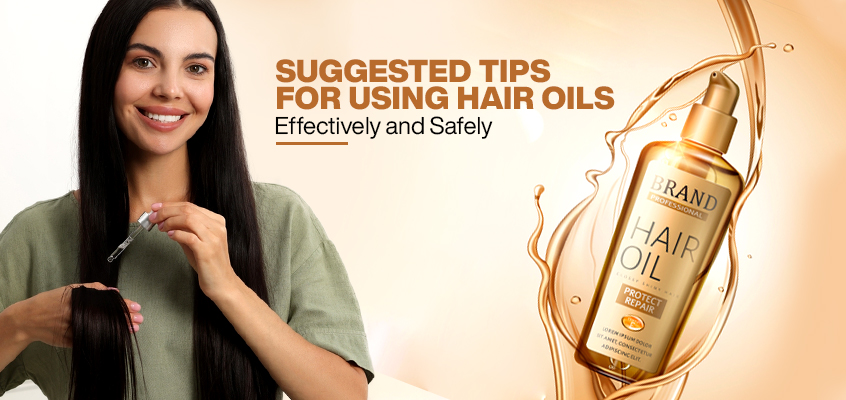Oils for Hair Fall Control

Unlock the Power of Essential Oils: Your Ultimate Guide to Controlling Hair Fall
- Introduction: Understanding the Role of Oils in Tackling Hair Fall
- What are Essential Oils for Hair Fall Control?
- Causes of Hair Fall: Identifying the Culprits and Solutions
- Unveiling the Root Causes of Hair Fall
- The Science Behind Oils That Can Control Hair Fall
- Benefits of Essential Oils for Hair Growth: Backed by Research
- Nourishment and Strengthening Properties of Essential Oils
- Promoting Circulation and Follicle Stimulation
- How to Utilize Essential Oils to Reduce Hair Fall: Best Practices
- Proper Application Techniques for Maximum Effectiveness
- Incorporating Essential Oils into Your Hair Care Routine
- Types of Essential Oils and Their Unique Benefits for Hair Health
- Carrier Oils for Hair Growth: Amplifying the Benefits
- Types of Carrier Oils and Their Benefits for Hair Growth
- Tips for Using Hair Oils for Hair Growth: Expert Advice
- Dilution Ratios and Safety Measures
- Incorporating Oils into Hair Masks and Treatments
- Potential Complications and Risks of Oils for Hair Growth: Precautions to Take
- Allergic Reactions and Sensitivities
- Understanding Sensitivity Testing and Patch Tests
- When to Consult a Doctor for Hair Loss: Recognizing Red Flags
- Differentiating Between Normal Shedding and Excessive Hair Loss
- Signs That Indicate Underlying Health Issues
- Suggested Tips for Using Hair Oils Effectively and Safely
- Consistency is Key: Establishing a Routine
- Staying Hydrated and Maintaining a Balanced Diet
- Understanding Potential Complications and Risks of Hair Oils
- Sun Sensitivity and UV Protection
- Potential Interactions with Medications
- Conclusion: Harnessing the Power of Oils for Optimal Hair Growth
- Embracing Natural Solutions for Healthier, Stronger Hair
- 10 FAQs About Essential Oils for Hair Fall Control
Introduction: Understanding the Role of Oils in Tackling Hair Fall
Hair fall is a common concern that affects many individuals at various stages of life. Factors such as stress, nutritional deficiencies, hormonal imbalances, and poor hair care routines contribute significantly to this condition. While the market is flooded with numerous hair care products claiming to arrest hair fall, the efficacy of natural remedies, particularly essential oils, has gained considerable attention. Essential oils, extracted from plants, are potent in promoting scalp health and hair growth due to their therapeutic properties. These natural remedies not only aim to reduce hair fall but also strengthen the hair from its roots, ensuring a healthier growth cycle. Embracing a natural approach to hair care with essential oils can be a gentle yet effective strategy to combat hair fall and foster a nourished, resilient mane.
Understanding the root cause of hair fall
Before we delve into the various oils that can help with hair fall control, it is important to understand the underlying reasons behind hair fall. While there can be multiple factors contributing to hair fall, some common causes include poor scalp health, hormonal imbalances, nutritional deficiencies, and excessive styling or heat damage.
One of the key steps in effectively addressing hair fall is identifying the root cause and addressing it accordingly. If you suspect that your hair fall is due to poor scalp health, incorporating oils that nourish and stimulate the scalp can be beneficial. For those with hormonal imbalances, consulting with a healthcare professional may be necessary to find a solution that works for you.
By understanding the specific cause of your hair fall, you can tailor your oil usage accordingly and effectively combat the problem from its roots. In the next section, we will discuss the different types of oils and their properties that can help in treating various causes of hair fall. Stay tuned!
The Benefits of Using Oils for Hair Fall Control
The use of natural oils as a remedy for hair fall is rooted in ancient traditions, backed by modern science. These oils, extracted from plants, seeds, and nuts, contain potent nutrients and antioxidants that nourish the scalp and strengthen hair from root to tip. Incorporating oils into your hair care routine can offer a comprehensive approach to combating hair fall, promoting healthy growth, and maintaining scalp health. Let's delve into how these natural oils function to prevent hair fall and encourage a fuller, healthier mane.
-
How oils can nourish the scalp
A well-nourished scalp is the foundation of healthy hair growth. Many essential and carrier oils possess properties that deeply moisturize the scalp, alleviating dryness and dandruff, which are common contributors to hair fall. For instance, oils rich in fatty acids, such as omega-3 and omega-6, can help restore the natural lipid barrier of the scalp, retaining moisture and improving its overall health. Additionally, oils like tea tree and peppermint exhibit antimicrobial properties, aiding in the removal of bacteria and fungus that could lead to scalp infections and hinder hair growth. By fostering a healthy environment, these natural oils ensure that hair follicles are well-nurtured, reducing hair fall and paving the way for new growth.
-
Strengthening hair follicles with natural oils
The strength of hair follicles plays a crucial role in hair retention and growth. Essential oils, such as rosemary and lavender, are renowned for their ability to stimulate blood circulation to the scalp. Enhanced blood flow delivers more nutrients and oxygen to the hair follicles, fortifying them and promoting stronger, more resilient hair strands that are less prone to fall. Moreover, certain oils contain antioxidants and vitamins that help protect the hair follicles from damage caused by environmental stressors like pollution and UV radiation. By reinforcing the hair follicles, these oils not only prevent hair fall but also support the growth of healthier hair.
Identifying the right oils for hair fall control
Now that we have a better understanding of the underlying causes of hair fall, let's explore the different types of oils that can assist in treating specific hair fall issues.
-
- For those experiencing poor scalp health, oils such as tea tree, rosemary, and peppermint can be beneficial. These oils have antimicrobial properties that can help combat dandruff, scalp infections, and inflammation, which are common culprits of hair fall. Massaging these oils into the scalp can improve blood circulation and promote a healthier scalp environment for hair growth.
-
- If hormonal imbalances are contributing to your hair fall, oils like lavender and clary sage are known for their hormone-balancing properties. These oils can help regulate the production of hormones in the body, reducing hair fall caused by hormonal fluctuations.
-
- Nutritional deficiencies can also lead to hair fall, and certain oils can provide the essential vitamins and minerals needed for healthy hair growth. Some great options include castor oil, coconut oil, and argan oil, which are rich in nutrients like vitamin E, fatty acids, and antioxidants.
-
- Lastly, excessive styling or heat damage can weaken the hair and lead to breakage. Oils like jojoba oil, almond oil, and avocado oil can help restore moisture, repair damage, and strengthen the hair shaft, reducing hair fall caused by heat styling.
In the next section, we will delve deeper into the properties and benefits of these oils and discuss how they can be effectively incorporated into your hair care routine for maximum results.

4. How to properly use oils for maximum effectiveness
Now that we have identified the right oils for hair fall control, it's important to understand how to properly use them for maximum effectiveness. Here are some tips to help you get the most out of your oil treatment:
- Choose high-quality oils: Opt for cold-pressed, organic oils to ensure that you are getting the purest and most effective form of the oil. Avoid oils that contain additives or synthetic ingredients, as they may not deliver the desired results.
- Dilute the oils: It is crucial to dilute essential oils before applying them to your scalp, as they are highly concentrated and can cause skin irritation if used undiluted. Mix a few drops of essential oil with a carrier oil, such as coconut or jojoba oil, to create a safe and effective blend.
- Apply to the scalp: Using your fingertips, gently massage the oil mixture into your scalp. Focus on the areas that are most affected by hair fall. This will help improve blood circulation, promote a healthy scalp environment, and nourish the hair follicles.
- Leave it on overnight: For optimal results, leave the oil treatment on overnight. Cover your hair with a shower cap or wrap it in a towel to prevent any staining or oil transfer. In the morning, wash your hair thoroughly with a mild shampoo to remove any excess oil.
- Be consistent: Consistency is key when using oils for hair fall control. Incorporate oil treatments into your hair care routine at least once a week for noticeable results. Remember, it may take some time to see significant improvements, so be patient and persistent.
By following these practices, you can maximize the effectiveness of oils for hair fall control and achieve healthier, stronger hair. In the next section, we will discuss additional tips and tricks to complement your oil treatment regimen.
Incorporating oils into your hair care routine
Incorporating oils into your hair care routine is essential for long-term hair fall control. Here are some additional tips and tricks to complement your oil treatment regimen:
- Use oil-based hair masks: Once a month, treat your hair to an oil-based hair mask. Mix your preferred hair oil with ingredients like yogurt, honey, or egg, and apply it from roots to ends. Leave it on for 30-60 minutes before washing it off with a mild shampoo. This deep conditioning treatment will nourish your hair and promote healthy growth.
- Try hot oil treatments: Heat can enhance the benefits of oil for your hair. Warm up your preferred oil and apply it to your scalp and hair strands. Massage gently and wrap a warm towel around your head for 15-20 minutes. This helps the oil to penetrate deeply into the hair shafts, strengthening them from within.
- Protect your hair from heat and styling damage: Hair fall can be exacerbated by heat and styling tools. Minimize their usage and always apply a heat protectant spray before using any heat-styling device. Additionally, opt for gentle hair accessories that won't cause breakage or traction on your strands.
- Watch your diet: A healthy diet promotes healthy hair growth. Include foods rich in vitamins A, C, and E, as well as omega-3 fatty acids, zinc, and biotin in your meals. These nutrients support hair health and reduce hair fall.
By incorporating these practices into your hair care routine, you can enhance the effectiveness of oil treatments and take control of your hair fall issues. In the next section, we will explore common mistakes to avoid when using oils for hair fall control. Stay tuned!
Maintaining consistency for long-term results
One key aspect of effectively using oils for hair fall control is maintaining consistency in your hair care routine. Consistency is crucial for achieving long-term results and seeing a noticeable decrease in hair fall.
It's important to establish a regular schedule for oil treatments and stick to it. Whether you choose to apply the oil overnight or before shampooing, make it a habit to consistently incorporate this step into your routine. Consistency allows the oil to work its magic and nourish your hair follicles consistently, promoting healthy growth and reducing hair fall over time.
Moreover, consistency also applies to the choice of oil you use. Experiment with different oils to find the one that works best for your hair type and concerns. Once you find the perfect oil, stick with it and be consistent in its usage to reap the maximum benefits.
So, remember, be consistent in both the application of oil and the choice of oil to effectively control hair fall and achieve healthier, stronger locks.
Additional tips and precautions for using oils for hair fall control
While consistency is key when using oils for hair fall control, there are also some additional tips and precautions you should keep in mind to ensure the best results. Here are a few:
- Firstly, always make sure to apply the oil evenly throughout your scalp and hair. Massaging it gently into your scalp will help stimulate blood circulation and ensure that the oil reaches the hair follicles effectively.
- Secondly, avoid using excessive amounts of oil as it can weigh down your hair and make it look greasy. A little goes a long way, so start with small quantities and adjust according to your hair's needs.
- Additionally, consider warming the oil slightly before application. This will enhance its absorption and make it easier for the oil to penetrate the hair shaft and provide nourishment.
- Lastly, remember to be patient. Hair fall control takes time, and results may not be immediate. Consistency and perseverance are key, so continue with your oil treatments regularly and be patient as you wait for the desired results.
By following these additional tips and precautions, you can maximize the effectiveness of using oils for hair fall control and achieve healthier, stronger hair. Stay tuned for the next section, where we will explore natural remedies to complement your oil treatments.
Types of Essential Oils and Their Unique Benefits for Hair Health
- Lavender Oil: Soothing and Scalp Balancing
- Rosemary Oil: Stimulating Hair Growth and Thickness
- Peppermint Oil: Cooling Sensation and Improved Scalp Health
Types of Carrier Oils and Their Benefits for Hair Growth
- Jojoba Oil: Mimics the Scalp's Natural Oils
- Coconut Oil: Deep Conditioning and Moisturizing
- Argan Oil: Adding Shine and Softness to Hair
Potential Complications and Risks of Oils for Hair Growth: Precautions to Take
While natural oils offer many benefits, it is essential to understand that everyone's hair is unique. What works for one person may not work for another. It is crucial to select oils that suit your hair type, allergies, and skin sensitivity. In case of any adverse reactions or complications, discontinue use and consult a healthcare professional.
- Allergic Reactions and Sensitivities
- Understanding Sensitivity Testing and Patch Tests
When to Consult a Doctor for Hair Loss: Recognizing Red Flags
- Discuss the common concern of hair loss among individuals.
- Highlight the importance of knowing when to consult a doctor.
- Emphasize the role of distinguishing between normal shedding and excessive hair loss.
- Understanding Normal Shedding vs. Excessive Hair Loss:
- Define normal shedding: Shedding up to 100 strands a day is considered normal.
- Explain excessive hair loss: Losing significantly more than 100 strands daily may indicate a problem.
- Mention factors like age, genetics, and hormonal changes affecting shedding patterns.
- Recognizing Red Flags:
- Sudden and noticeable hair loss: Rapid thinning or bald patches could signal an issue.
- Changes in hair texture or quality: Brittle, dry, or easily breakable hair might indicate underlying problems.
- Scalp conditions: Persistent itching, flaking, or redness may point to dermatological issues.
- Hair shedding during non-stressful times: Losing hair outside of normal shedding periods could signify health concerns.
- Signs of Underlying Health Issues:
- Hormonal imbalances: Conditions like thyroid disorders or polycystic ovary syndrome (PCOS) can cause hair loss.
- Nutritional deficiencies: Lack of essential nutrients such as iron, protein, or vitamins can lead to hair thinning.
- Stress-related hair loss: Chronic stress can trigger a condition called telogen effluvium, causing excessive shedding.
- Medical conditions: Diseases like alopecia areata or lupus can result in significant hair loss.
Suggested Tips for Using Hair Oils Effectively and Safely
In the pursuit of luscious locks, many turn to hair oils for their nourishing properties. However, using these oils effectively and safely requires more than just a sporadic application. In this guide, we delve into the essential tips for harnessing the power of hair oils to promote healthy hair growth and vitality.
- Consistency is Key: Establishing a Routine
- Consistency breeds results when it comes to using hair oils. Set a regular schedule for oiling your hair, ideally 1-2 times per week.
- Prioritize scalp massage during application to stimulate blood circulation, aiding in better oil absorption and promoting hair growth.
- Choose the right oil for your hair type and concerns, whether it's coconut oil for hydration, argan oil for shine, or jojoba oil for scalp health.
- Staying Hydrated and Maintaining a Balanced Diet
- Hydration isn't just for your skin; it's crucial for your hair's health too. Drink an adequate amount of water daily to keep your hair hydrated from the inside out.
- Incorporate a balanced diet rich in vitamins, minerals, and proteins essential for healthy hair growth. Foods like salmon, avocados, nuts, and leafy greens can work wonders for your locks.
- Supplement your diet with hair-boosting nutrients like biotin, vitamin E, and omega-3 fatty acids to enhance hair strength and shine.
Understanding Potential Complications and Risks of Hair Oils
Hair oils have long been hailed as miracle workers for promoting hair health and growth. However, amidst their benefits, it's crucial to shed light on the potential complications and risks associated with their usage. In this article, we'll delve into two significant concerns: sun sensitivity and interactions with medications.
- Sun Sensitivity and UV Protection: Hair oils, especially those containing certain ingredients like citrus extracts or essential oils, can increase the scalp's sensitivity to sunlight. This heightened sensitivity may lead to sunburns or other forms of UV damage to the scalp. To mitigate this risk, it's advisable to:
- Opt for hair oils with added UV protection or SPF properties.
- Wear hats or scarves when exposed to direct sunlight for extended periods.
- Limit sun exposure during peak hours.
Understanding the importance of UV protection is crucial in maintaining not just hair health but overall scalp health as well.
- Potential Interactions with Medications: Hair oils, when applied topically, can sometimes interact with medications, leading to adverse effects. Certain ingredients in hair oils may interfere with the absorption or efficacy of medications taken orally or applied to the skin. To avoid complications, it's recommended to:
- Consult a healthcare professional before incorporating new hair oils, especially if you're on medication.
- Be cautious of ingredients known to have potential interactions, such as peppermint oil or tea tree oil.
- Conduct a patch test before widespread application to ensure compatibility with any medications you may be using.
Understanding these potential interactions can prevent undesirable outcomes and ensure the safe use of hair oils in conjunction with medications.
While hair oils offer numerous benefits for hair and scalp health, it's imperative to approach their usage with caution and awareness of potential complications. By understanding the risks associated with sun sensitivity and medication interactions, individuals can make informed choices to safeguard their hair and overall well-being. Remember, consulting with professionals and being mindful of ingredients can go a long way in maximizing the benefits of hair oils while minimizing any associated risks.
Conclusion: Harnessing the Power of Oils for Optimal Hair Growth
In conclusion, the power of natural oils in controlling hair fall and promoting scalp health cannot be understated. From the rejuvenating properties of Rosemary Oil to the deep moisturizing benefits of Coconut Oil, each oil brings a unique set of advantages to the table. Lavender Oil, with its stress-reducing qualities, and Peppermint Oil, known for improving circulation, are also invaluable tools in your hair care arsenal. The antimicrobial properties of Tea Tree Oil make it an excellent choice for maintaining a healthy scalp, crucial for preventing hair fall.
Incorporating these essential oils into your hair care routine can be a game-changer. Not only do they provide a natural and effective way to combat hair fall, but they also contribute to overall hair health and shine. Whether you choose to massage these oils directly into your scalp, add them to your shampoo, or create a hair mask, their versatility and effectiveness are evident.
Remember, consistency is key when it comes to natural remedies. Regular use, combined with a healthy diet and adequate hydration, will yield the best results. While each oil has its distinct benefits, feel free to experiment and find the perfect blend that works for your specific hair type and concerns.
Embrace the power of nature and give your hair the care it deserves. Say goodbye to hair fall and welcome healthier, stronger hair with open arms.
You May Also Like:



